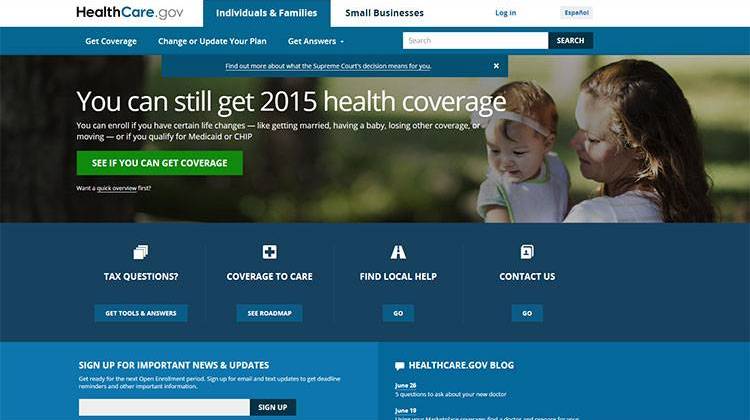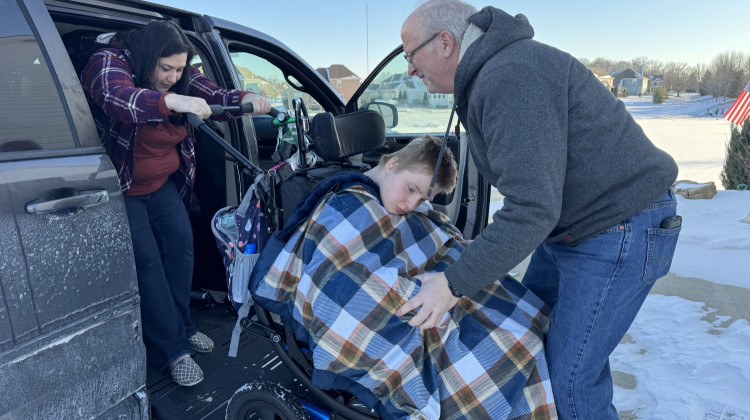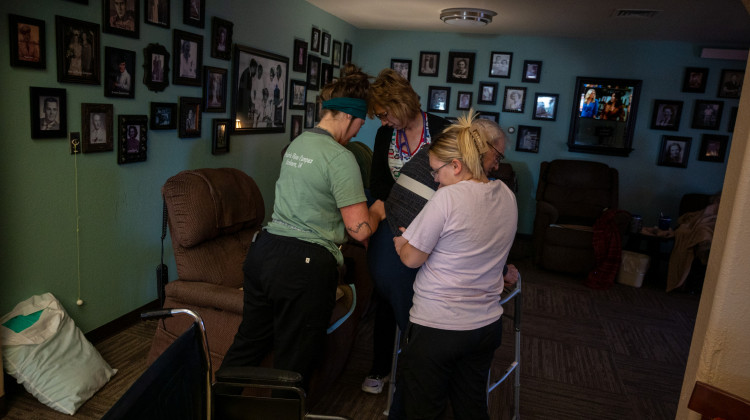
The Affordable Care Act passed its second major test before the Supreme Court Thursday. The justices ruled 6-3 that the federal subsidies were constitutional in all states, regardless of whether it had created an exchange.
INDIANAPOLIS -- The Affordable Care Act passed its second major test before the Supreme Court Thursday. The justices ruled 6-3 that the federal subsidies were constitutional in all states, regardless of whether it had created an exchange.
Lisa Clevenger of Muncie is one of several Americans who celebrated the decision in King v. Burwell. She and her husband weren’t able to afford insurance before the subsidies and faced going uninsured again if the court had ruled them unconstitutional.
“You talk about rolling change to finally make your electric bill because you had to pay for your health costs,” Clevenger said. “Yeah that’s a big deal.”
Clevenger said she’s been frustrated by the battle over Obamacare, and she hopes lawmakers will now work on its flaws instead of arguing whether it’s legal.
“Maybe that’s our break, our relief to look at, OK, now let’s improve the situation instead of leaving it the same and you just run into this repeating circle, repeating circle,” Clevenger said.
Despite calls from President Obama to move forward with the law, some national and state leaders - mainly Republicans - are signaling that the effort to scrap Obamacare is far from finished. Shortly after Thursday’s ruling, Indiana Gov. Mike Pence called for its repeal, and Congressional Republicans have voted more than 50 times to do just that.
The Affordable Care Act still faces other judicial threats as well. There are at least a dozen challenges in the federal courts, including one from Indiana and 39 of its school corporations. They’re suing the IRS, Department of Labor and the Treasury Department for what they say is an intrusion of the 10th amendment.
"This is fundamentally an issue of states’ rights,” said Jim Hamilton, an attorney with Bose McKinney & Evans who represents the schools in the suit.
Hamilton’s lawsuit focuses on the employer mandate in the Affordable Care Act, which requires large employers to provide health insurance for all workers who clock 30 or more hours a week. If they work over that threshold and don't receive healthcare, the IRS can penalize the employer $2,000 per employee. Hamilton says that fee is a tax and therefore violates the state's sovereignty.
"We believe that the federal government should not have the authority to directly tax these local units of government and effectively cause staffing changes the way they have,” Hamilton said.
Schools in the state have had to scale back the hours of bus drivers, cafeteria workers and teacher aides an average of six hours to ensure they don't work more than 29 a week.
"When these are very low income people, every hour counts and those are hours for which they are not getting paid and they are hours for which they are not spending time with their kids,” Hamilton said.
Thursday’s ruling undercut part of Indiana’s argument challenging the constitutionality of subsidies. But state Attorney General Greg Zoeller said he will still pursue the lawsuit, which was put on hold last fall while King v. Burwell was working its way through the courts.
But, IU Professor of Law and Co-Director of its Center for Health Policy David Orentlicher said the case has a one percent chance of succeeding. He said the $2,000 fee is a fine - not a tax - and the federal government has the right to collect it.
"State governments as employers are not immune from rules like that because they're government - because they're just being treated in the same way as any other employer,” Orentlicher said.
Orentlicher said that for the most part, Obamacare has survived its substantial legal challenges -and its bigger threat may be the outcome of next year’s presidential election.
 DONATE
DONATE








 View More Programs
View More Programs

 Support WFYI. We can't do it without you.
Support WFYI. We can't do it without you.